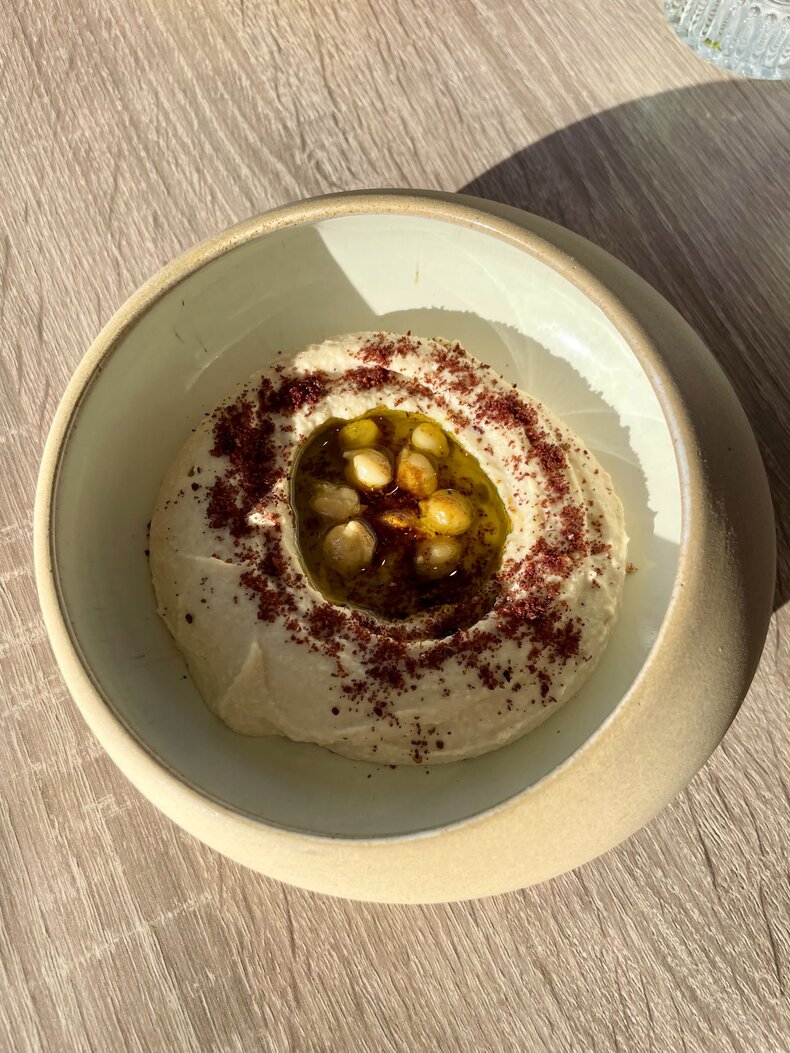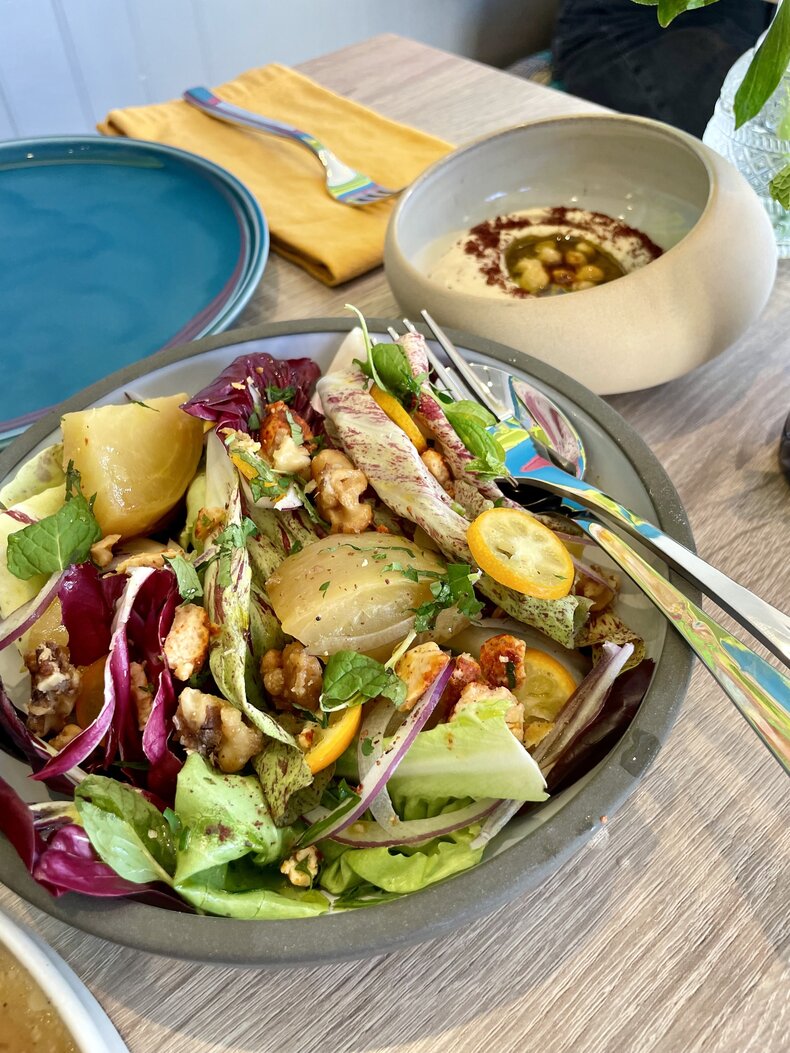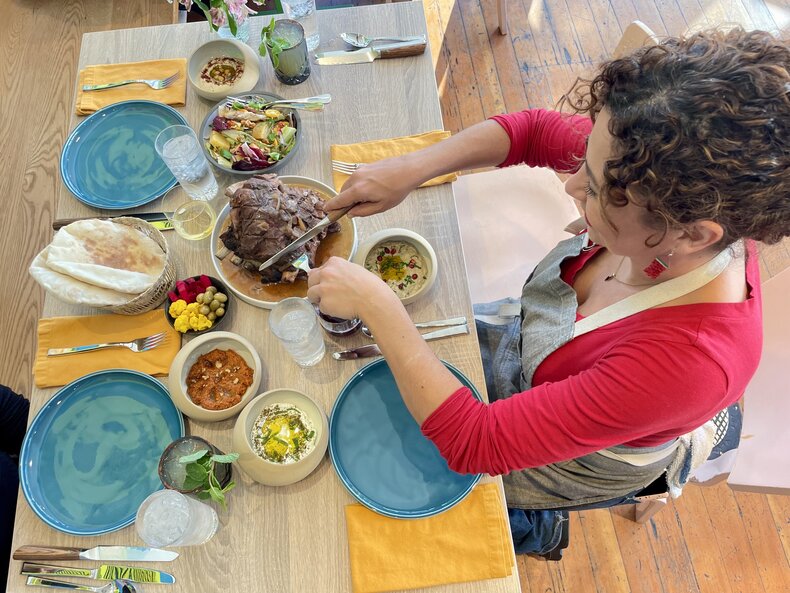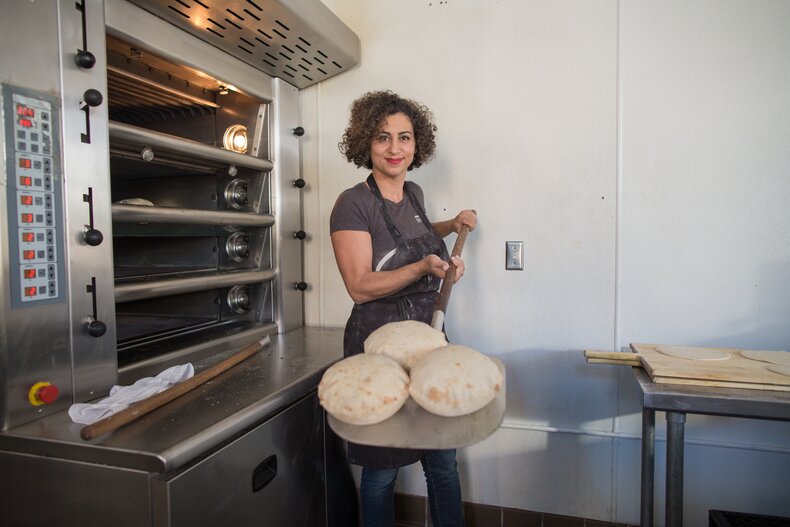Chef Reem Assil
cooks up community, connection
At the intersection of food and social justice, you’ll find Reem Assil. Her passion for people, for community and for the spaces that bring them together has taken her on an unlikely path from community organizer to award-winning chef.
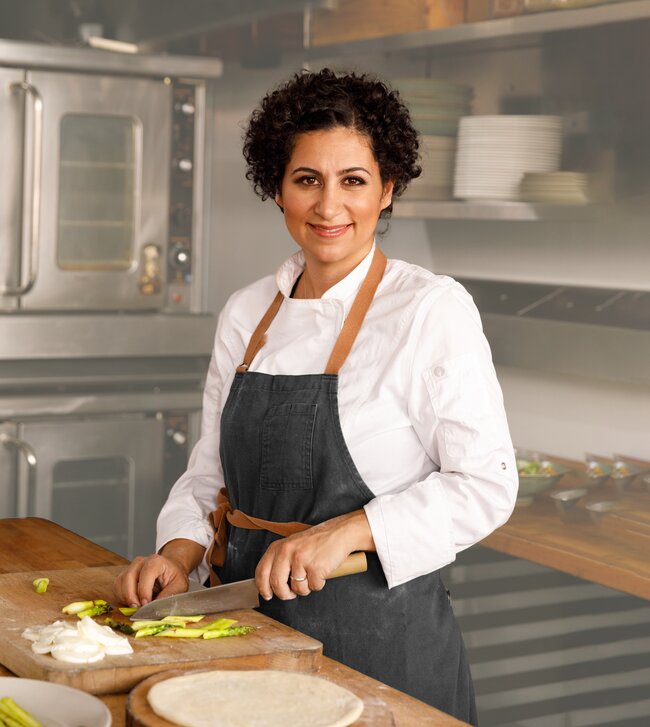
Assil, the owner of Reem’s California in San Francisco, began her career rallying support for social issues. But after many years, the daily grind of community organizing had her searching for a change. It was a 2010 trip to her family’s homeland in the Middle East that was the turning point in her career trajectory.
“I discovered these bakeries and these food spaces and just how they attracted such vibrancy and community, and I felt like that was just so lacking in my own community,” she remembers.
When Assil returned to the U.S., she quit her job (“To the chagrin of my parents,” she laughs) and enrolled herself in culinary school. Her dream – now the mission of Reem’s – was to build a bakery like the ones she’d fallen in love with overseas, a space that connects communities across cultures and experiences.
“I also felt this longing to connect to my roots and tell my story, to tell the story of the foodways of my people that were more than just street food,” she says. “Hummus and falafel are delicious, but we’re more than that.”

DISCOVER THE FIRE
inside you
At the center of Reem’s, which offers a pan-Arab menu of breads, spreads and sweets, is the concept of Arab hospitality: “No matter where you come from, or who or what your background is, we welcome you into our homes, we welcome you into our spaces, and we make you feel safe and have a sense of belonging,” Assil explains.
That welcome extends to the menu. Though Reem’s flavors and techniques are rooted in Assil’s heritage, they also reflect the people and produce of the Bay Area.
One example is the dandelion green, a traditional ingredient in Palestinian cooking that is also grown in California. At Reem’s it’s remixed as a flatbread, maintaining the essence of the dish while making it accessible to all diners. Another item showcases morita chile, a nod to the strong Latino culture on her staff and in the neighborhood.
“All of us kind of add our little thing to the mix,” Assil says. “Even though Reem’s is a marker of my culture and identity, so much of it is the people who run it.”
Assil seeks to empower her staff, lifting up their voices along with the voices of up-and-coming chefs, offering words of wisdom as well as space to host events. “I think it fuels my fire to pass the torch,” she says. “The fire kind of gets rekindled, every time it’s dim, in those moments of connection.”
"The fire kind of gets rekindled, every time it's dim, in those moments of connection."
She encourages those just starting out in the industry to find their own community like the one she found through San Francisco incubator La Cocina, which helps immigrants, women and people of color build their food businesses. She and her cohort there continue to support one another.
“It's really about collaboration, not competition, which I feel like is such a prevalent thing in this industry,” she says. “I've always found that like helping each other out, lifting other people up always actually serves you tenfold.”
Assil feels a keen sense of responsibility to use her platform as a small business owner as a tool for social change. “We got into food, hopefully because we wanted to take care of people, right?” she says.
And during a year that has seen conflict escalate in the Middle East, Assil feels the added weight of keeping the foodways of her ancestors alive.
“I don't claim to represent a whole people, but if I can tell my story of my family, my lineage, use my platform to tell the story of other Arab or Palestinian chefs … that is a responsibility that I don't take lightly.”
Times of struggle, she says, are a reminder of the importance of places like Reem’s, where people can laugh, cry and share their stories over a plate of food.
“There's rarely spaces where people can come and literally break bread together, and so I feel very fortunate,” she says. “If the food is what I have to offer, I will offer it wholeheartedly and create those spaces wherever I can.”

